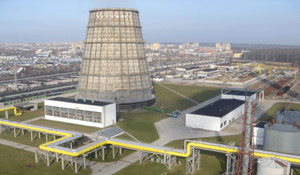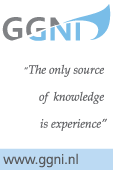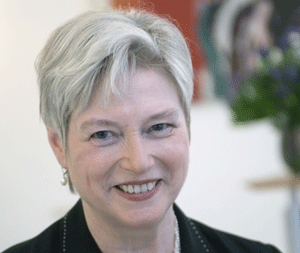Dutch gas experts ready for global mission
on
Dutch gas experts ready for global mission
The major Dutch gas infrastructure companies have launched a unique non-profit company that stands ready to solve gas infrastructure problems anywhere in the world. The Global Gas Networks Initiative (GGNI), as it is called, is manned by just-retired senior gas experts eager to share their know-how and experience. The Dutch government supports the venture ‘for strategic reasons’. ‘If Dutch companies win tenders because of GGNI’s efforts then that would be a positive outcome of course.’
 |
| Heat and Power Plant in Kaunas, Lithuania |
A lot is already being done to improve the system, but, says Lina van Kesteren, honorary consul of Lithuania in the northern Netherlands, ‘we could use new, innovative ideas. We are interested in finding out what solutions other cities have found with similar problems. For example, we would like to find out whether we can use other fuels to burn than gas or wood. Or how we can improve the energy efficiency of the apartments in the city at the lowest cost. It’s not that we lack technical skills, but expertise and experience from outside is always helpful.’
Kaunas is not alone of course. There are many cities in the world that can use assistance and know-how to improve their heating and power systems. But such help is hard to come by – especially if one does not have the funds to hire expensive consultancies. Fortunately, a new organisation has been set up to fill this need: the Global Gas Networks Initiative (GGNI). GGNI is a non-profit organisation made up of senior (retired) Dutch gas experts who are eager to assist foreign companies, governments and other organisations to solve any problems related to the transport, distribuition and storage of gas.
Van Kesteren is now in discussion with GGNI to see if it can help Kaunas to make a plan for the upgrading of its district heating system. And not just Kaunas. ‘There are many more cities in Lithuania that have similar challenges and that could profit from what GGNI has to offer’, says Van Kesteren.
Global mission
The director of the brand-new organization, Huub van Haelen, confirms that GGNI is discussing projects with the Lithuanians. But the 54-year old industry veteran, who has 32 years of experience in the oil and gas industry, notes that GGNI welcomes inquiries from all over the world. ‘We have also had initial talks already in Bangladesh, Rwanda and Angola. Other markets that we focus on are, for instance, Russia, Mexico and Saudi Arabia.’
Clearly, the “Global” in “Global Gas Networks Initiative” is no exaggeration. Yet, in spite of its worldwide mission, GGNI is a strictly Dutch venture. Its four shareholders are the four major gas infrastructure companies in the Netherlands: transmission system operator (TSO) Gasunie and the three largest distribution system operators (DSO’s), Enexis, Stedin and Alliander. Van Haelen is “on loan” to GGNI from Gasunie to lead the venture.
These companies have various reasons for wanting to participate in GGNI. ‘At Gasunie we always get lots of technical questions from business relations’, says Van Haelen. ‘They often take a lot of time to answer, and there is always a shortage of people to answer them. At the same time, our just-retired people have a lot of experience and know-how that they are still eager to share. So this is an ideal combination to help our relations and to give our former employees the chance to remain active. Some of them are already involved in disaster relief work, for instance in Haiti and Indonesia. Now they can do interesting projects all over the world.’
And GGNI will have another function for Gasunie: the idea is to get students and trainees involved as well. Thus GGNI will offer young people an opportunity to work abroad and learn from senior experts. Van Haelen: ‘It will make the gas sector a more attractive profession for young technical talents who are still looking for a career.’
Jeroen de Swart, CEO of GGNI-shareholder Stedin, which has 2 million customers in the western part of the Netherlands, also thinks that GGNI can benefit both the youngest and the oldest generation of employees. ‘GGNI can offer very interesting experiences for our senior people, with a lot of spinoff for young people in our organisation. By attaching students and trainees to the projects, they will get an opportunity to travel and solve new problems.’
De Swart sees another advantage: ‘Through GGNI we might be able to attract talented young people from abroad to come and work for us.’ More generally, says De Swart, Stedin sees GGNI as one way of making itself more attractive as an employer. ‘That’s important at a time when there is a shortage of highly skilled people.’
According to De Swart, GGNI has already attracted a lot of interest from senior and retired employees of the four shareholders. ‘We have over 50 volunteers already who want to work for GGNI. They are ready to fly out to share their expertise with the world.’
Stand in line
The immediate interests of the shareholders do not tell the whole story behind GGNI, though. There is a strategic, national Dutch interest behind it as well. GGNI is supported by the Dutch Ministry of Economic Affairs, which is responsible for energy policy in the Netherlands. In fact, it was the Dutch Minister of Economic Affairs Maria van der Hoeven, who, together with Gasunie’s CEO Marcel Kramer, initiated the idea.
 |
‘With GGNI we can show the world that the Netherlands is a real knowledge economy when it comes to gas’, says Van der Hoeven. ‘And this perfectly fits into my ambition to make the Netherlands the gas hub of North Western Europe.’
‘The fact that we produce less gas does not mean we have to have less employment in the sector’, confirms Van Haelen. ‘Our companies and consultancy firms have an intimate knowledge of all parts of the gas value chain. If you look at a technical consultancy like Kema, which used to be part of the distribution system operators, they have successfully developed products and services that they sell all over the world. GGNI can help spread the word about the Dutch gas business.’
This means that GGNI does not necessarily have to be active in gas producing countries, although that does have practical value sometimes. In Angola, for instance, says Van Haelen, the government has decided that foreign operators that want to be involved in oil and gas production have to leave more than empty fields behind when they leave again. An organisation like GGNI can make a positive contribution to the country’s economy and thereby help Dutch companies obtain production licenses. Another target country for GGNI is Russia. ‘The Russians have a lot of knowledge of their own’, Van Haelen says, ‘but they are always interested in discussing new ideas.’
Financial plan
One fascinating aspect of GGNI, says Van Haelen, is that it combines the knowledge of the Dutch TSO (Gasunie) with the three DSO’s Enexis, Stedin and Alliander. ‘That yields interesting insights, for example about how best to combine gas-fired power stations with district heating systems. The DSO’s have very special skills of their own. For example, a company like Stedin knows everything about supplying CO2 and hot water to agricultural greenhouses. In fact, the distribution companies have probably even more input into GGNI than Gasunie.’
Van Haelen is not afraid that consultancy companies like Kema, McKinsey or PriceWaterhouseCoopers regard GGNI as “unfair competition”. ‘On the contrary. They like the fact that we exist. We are particularly well-equipped to assist in the first stages of a project. They are usually too expensive anyway to be brought in that early - the World Bank and other institutions have set maximum rates that are below their rates - and they also don’t always have the right skills for this. They like to come in after the scope of a project has been defined.’
GGNI will usually identify the problem, define the scope of the project, and come up with an implementation plan and a financial plan. It also offers training and coaching and carries out reviews of projects. With the plans produced by GGNI, a client can try to obtain funding from banks and subsequently tender the project. And if a Dutch company then happens to win the tender? ‘Well’, says Van Haelen, ‘we would regard that as a positive outcome of course.’
Dutch Minister of Economic Affairs Maria van der Hoeven about GGNI:
|
‘But there is more. In my meetings with foreign energy ministers, I have often been asked for help in solving problems. Very often I didn’t really know who to ask. In many cases the questions were also not very specific, so they could not very well be addressed by consultants. For this reason too I am glad we now have GGNI. With GGNI we can show the world that the Netherlands is a real knowledge economy when it comes to gas. And it perfectly fits into my ambition to make the Netherlands the gas hub of North Western Europe.’ |



Discussion (0 comments)